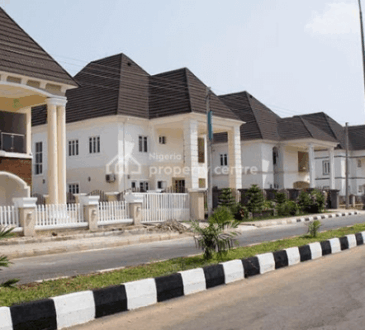…Urges Nigeria to end electricity subsidy
…Ways & means exposes FG’s real financing cost
…Edun says there’s momentum to invest in Nigeria
The Nigerian economy will need to grow five times faster than its current rate to meet the $1 trillion-dollar target by 2030, according to the World Bank.
But achieving this lofty ambition requires galvanising private sector investments and foreign direct investments (FDIs) as well as implementing an export-oriented growth strategy.
Sienaert, World Bank lead economist for Nigeria, while presenting the Nigeria Development Update (NDU) Report on Monday in Abuja, noted that the current pace of expansion falls short of what is required to reach the government’s ambition. He, however, noted that Nigeria’s economic outlook remains optimistic if current reforms are sustained and improved upon.
“The economy is required to be growing about five times faster than it is now to achieve that goal,” Sienaert said.
He compared Nigeria’s progress to that of Indonesia, which surpassed the $1 trillion mark over a decade ago.
Indonesia is a mixed and emerging economy like Nigeria. But its gross domestic product (GDP) is estimated at $1.4 trillion, driven by the industrial sector and services. Like Nigeria, it underwent reforms in the 2000s, cutting its massive gasoline subsidies that were to cost $14 billion by October 2005.
Similarly, Nigeria went through the reforms phase in 2023 and 2024 as it removed the costly petrol and foreign exchange (FX) subsidies that were gulping millions of naira.
“Another perspective you can put on it is compare Nigeria to Indonesia, which achieved trillion-dollar economy about a decade ago, highlighting the significant gap that Nigeria would need to close by growing much faster than Indonesia for a period of time,” he said.
Sienaert cautioned that macroeconomic reforms alone would not be sufficient to deliver the leap Nigeria needs, recommending a private-sector led growth enabled by the public sector.
Read also: World Bank calls for end to Nigeria’s ‘wasteful, regressive electricity subsidy’
“The private sector has to come in,” he noted. “It has to invest at scale; it is helpful for there to be foreign direct investment, and it’s helpful for there to be exports so you can tap big markets. So, on the private sector side, there could be a focus on fostering a good environment for firms to grow and, perhaps, looking at unleashing the potential of specific important sectors,” he said.
“So, what we offer for the discussion in the report is this idea of a kind of plan for growth, a package of reforms to drive this growth that would amount, as mentioned, to a private-led, public-facilitated growth model, he also said.
Speaking further, Sienaert described Nigeria’s 2025 budget as ‘overly ambitious’ and questioned whether the revenue projections underpinning it are realistic.
“What we mean by ambitious is that even with the very positive revenue tailwind that I described that we have, even considering that it looks like it’s going to be pretty hard to meet some of the ambitious revenue targets that are in there, and we can see this just by looking at some of the key assumptions,” he explained.
Among the assumptions he flagged as potentially optimistic are oil production averaging 2.1 million barrels per day — compared to current figures closer to 1.6 million, and a projected crude price of $75 per barrel in 2025, which may prove high given the global outlook. Brent Crude stood at $65.14 per barrel at 6.36 pm on Monday, with WTI priced at $62.22 per barrel at the same time.
Key uncertainties, he said, include how gains from the removal of petrol subsidies will be shared across the federation and how windfall taxes on FX gains will be treated.
Global lender urges tight monetary policy
Also, Taimur Samad, acting World Bank’s country director for Nigeria, stated that Nigeria’s macroeconomic situation is improving because of the commitment to sustain reforms, but warned that the war is not won yet due to many challenges, including inflation, which he said has remained ‘high and sticky.’
“It will be crucial for the CBN to stay the course with tight monetary policy to anchor stability. But if it does so, as we anticipate it will, we expect that inflation will fall to an annual average of just over 22 percent in 2025. That is a major achievement,” Samad said.
Consumer prices rose 24.23 percent in March 2025, up from 23.18 percent recorded in February, driven by rising food prices and a slight increase in petrol prices, with analysts expecting prices to moderate in April.
Read also: Nigeria’s inflation to average at 22% in 2025 if CBN holds tight monetary policy – World bank
The sticky inflation means that key benchmark interest rates will remain elevated for longer to tame the seeming spike in prices.
“Price pressures remain high, and re-anchoring inflation expectations requires sustained monetary policy efforts and coordination with fiscal policy.”
The Monetary Policy Committee (MPC) has, over the course of its meetings since governor Olayemi Cardoso assumed office, raised benchmark interest rates by a combined 875 basis points to 27.5 percent to anchor inflationary pressures that have shrunk consumer spending.
At its last MPC meeting in February 2025, the CBN held the rates steady and may likely to hold further in its next meeting scheduled to hold at the end of May.
The CBN governor has continued to assure Nigerians that the bank will continue to roll out measures to lower inflation and ensure stability needed to allow businesses to thrive and boost consumer spending power.
End of ways & means reveals true FG’s cost
The World Bank further said that the discontinuation of the CBN’s Ways and Means advances, combined with ongoing monetary policy tightening, has exposed the higher cost of government borrowing in Nigeria.
According to the NDU report, with W&M advances no longer serving as a backdoor source of cheap financing, government borrowing began reflecting market realities in 2024. Consequently, lending to the central government became more profitable for banks and other deposit-taking institutions, with credit to the government rising by 19.8 percent year-on-year by December 2024.
Read also: Edun, Cardoso say Nigeria’s reforms gaining global traction
Ways and Means are facilities through which the CBN finances the federal government’s budget shortfalls. Under former President Muhammadu Buhari, total Ways and Means stood at N30 trillion.
The World Bank also pointed to structural limitations in the monetary policy framework. Unlike in many countries where the Cash Reserve Ratio (CRR) is used as a prudential tool, Nigeria relies heavily on the CRR to manage liquidity. This has resulted in exceptionally high CRR levels, constraining banks’ ability to lend. As of 2024, 27 percent of total bank deposits were held in required reserves with the CBN, and an additional 12 percent were locked in CBN securities. Together, 41 percent of deposits were effectively sterilised, reducing the pool of funds available for lending to both public and private sectors.
Edun says there’s momentum to invest in Nigeria
Meanwhile, Wale Edun, coordinating minister of finance and economy, said investors are already showing interest in pumping funds in telecom technology and broadband access.
He said the next steps for Nigeria is to boost investment, stressing that “it’s investments that allow increases in productivity, grow the economy, create jobs and can lift Nigerians out of poverty in their millions.”
“So, we are trying to go to 7 percent growth, and I think building momentum, that word momentum,” Edun said.
The minister assured that government will also focus on social safety nets as efforts are being made to digitise the way government reaches out to help Nigerians.
Olayemi Cardoso, CBN governor, explained that the apex bank will continue the course of orthodox monetary policy.
“If we’re able to continue the course, which we will, then over time, the inflation should moderate. And of course, with that would go moderation in interest rates as well,” he said.
The CBN boss, however, noted that staying the course is not as easy as it sounds but expressed optimism that the reforms will heighten growth that will trickle down to the most vulnerable in the country.





